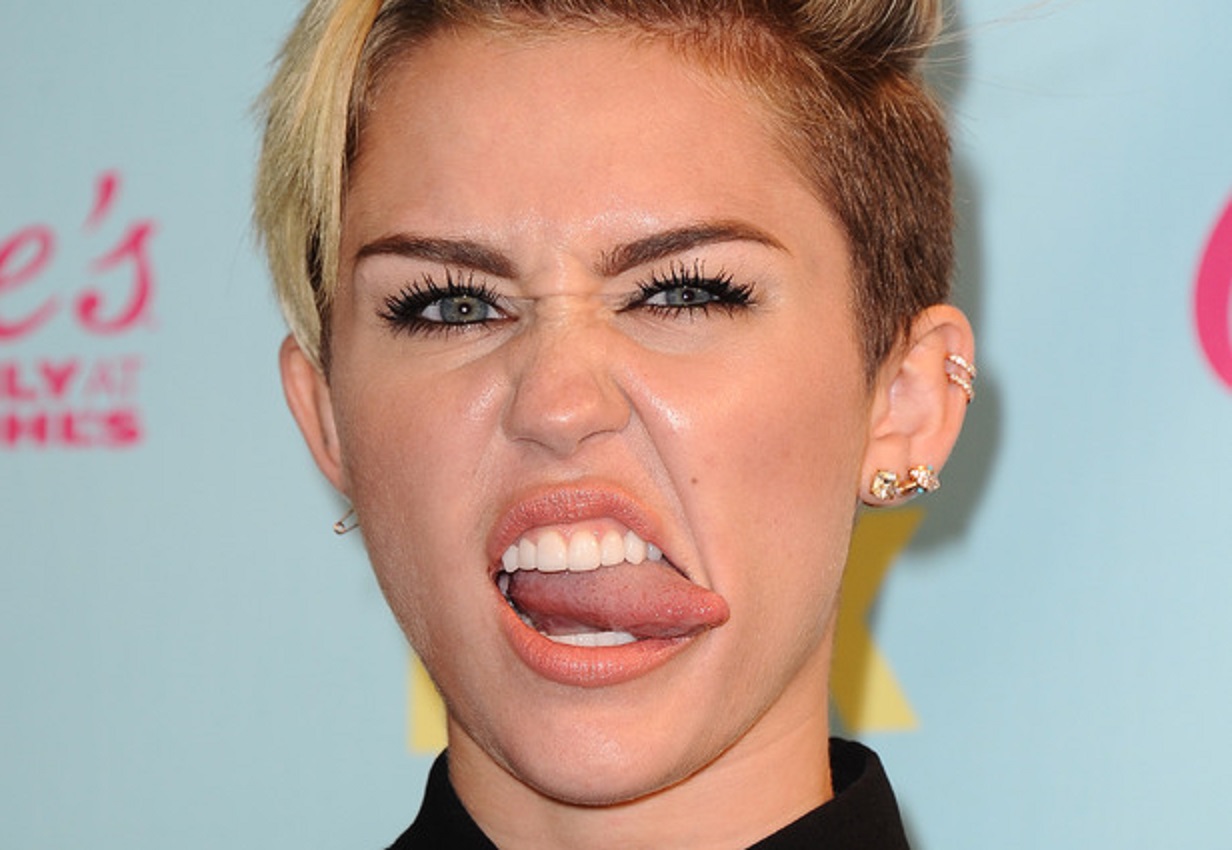- Because Our Children Are Watching
- Join the Cause
- Donate
Written by PTC | Published August 11, 2015
 That’s the question du jour this week, it seems.
Headlines from The Washington Post, ABC News, and People, among others, talk about Miley Cyrus’ comments about sex and violence in entertainment, questioning why one seems to get more attention than the other.
Great questions, Miley. We’re glad you brought that up.
Our long-standing mission at the Parents Television Council has been to combat sex, violence, and profanity on TV and in entertainment and bring about public awareness of those issues because of the long-term harmful effects they can have on children.
So is the graphic sex worse than graphic violence, or is the graphic violence worse than the graphic sex? The reality is that both can be harmful to children. Social and medical science confirms what most parents instinctively know to be true: children who consume explicit entertainment content -- both sexual imagery and violent imagery -- can be negatively impacted. Justifying one by pointing to the other is deceptive at best, and toxic to the mental and physical health of children at worst.
We are especially concerned about the harmful effects that sexualized media can have on young girls, and created a campaign, “4 Every Girl,” to address this problem.
Just two years ago, our own research found that underage female characters on primetime broadcast television are more likely to be presented in sexually exploitative scenes than adult women.
That’s unacceptable.
And our research also shows that there’s way too much violence on TV. In our most recent study on media violence, we found that the volume and degree of violent content shown on broadcast and cable television are virtually indistinguishable, and that broadcast TV shows in the study consistently underrated graphically-violent content as appropriate for 14-year-old children, even though similar content on the cable networks was rated for mature audiences only.
That’s also unacceptable.
We think the question shouldn’t be which type of content is worse. The question is what the entertainment industry is going to do about it. Everyone in the industry is responsible, but no one likes to take any ownership for the harm that can be done to children, instead pointing fingers at parents as the only ones who should be responsible. While parents should be involved in their children’s media, they are certainly not the only ones to blame.
Consider that the entertainment industry is eager to tout any successes it may have with how TV can influence the culture for good. We’ve certainly seen that with anti-smoking on TV campaigns, and other causes.
But influence doesn’t end at the good.
That’s just the beginning.
That’s the question du jour this week, it seems.
Headlines from The Washington Post, ABC News, and People, among others, talk about Miley Cyrus’ comments about sex and violence in entertainment, questioning why one seems to get more attention than the other.
Great questions, Miley. We’re glad you brought that up.
Our long-standing mission at the Parents Television Council has been to combat sex, violence, and profanity on TV and in entertainment and bring about public awareness of those issues because of the long-term harmful effects they can have on children.
So is the graphic sex worse than graphic violence, or is the graphic violence worse than the graphic sex? The reality is that both can be harmful to children. Social and medical science confirms what most parents instinctively know to be true: children who consume explicit entertainment content -- both sexual imagery and violent imagery -- can be negatively impacted. Justifying one by pointing to the other is deceptive at best, and toxic to the mental and physical health of children at worst.
We are especially concerned about the harmful effects that sexualized media can have on young girls, and created a campaign, “4 Every Girl,” to address this problem.
Just two years ago, our own research found that underage female characters on primetime broadcast television are more likely to be presented in sexually exploitative scenes than adult women.
That’s unacceptable.
And our research also shows that there’s way too much violence on TV. In our most recent study on media violence, we found that the volume and degree of violent content shown on broadcast and cable television are virtually indistinguishable, and that broadcast TV shows in the study consistently underrated graphically-violent content as appropriate for 14-year-old children, even though similar content on the cable networks was rated for mature audiences only.
That’s also unacceptable.
We think the question shouldn’t be which type of content is worse. The question is what the entertainment industry is going to do about it. Everyone in the industry is responsible, but no one likes to take any ownership for the harm that can be done to children, instead pointing fingers at parents as the only ones who should be responsible. While parents should be involved in their children’s media, they are certainly not the only ones to blame.
Consider that the entertainment industry is eager to tout any successes it may have with how TV can influence the culture for good. We’ve certainly seen that with anti-smoking on TV campaigns, and other causes.
But influence doesn’t end at the good.
That’s just the beginning.